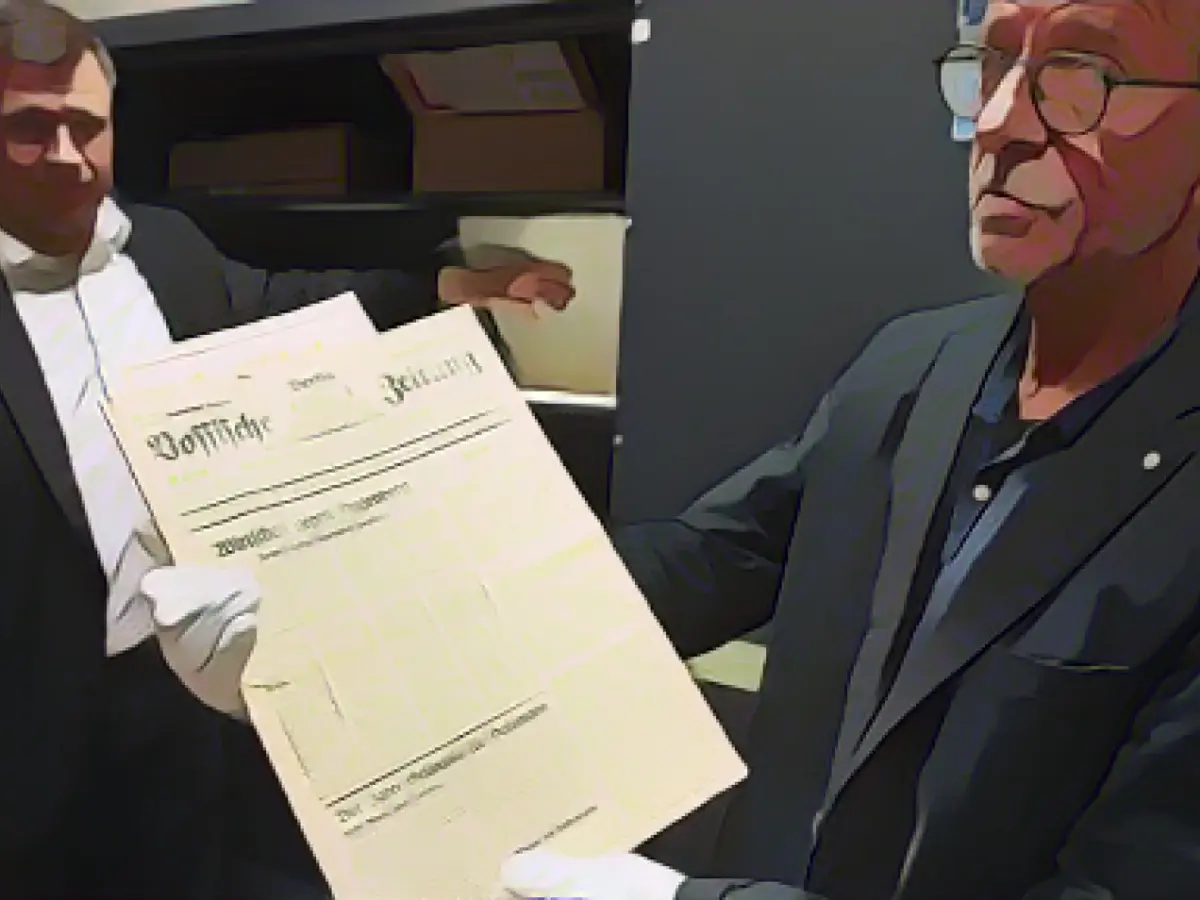Rheinsberg Seeks Discussion Over Museum Sponsorship Switch to District
The quaint town of Rheinsberg is keen on holding talks about a potential shift of the Kurt Tucholsky Literature Museum's sponsorship, from its current municipal responsibility, over to the Ostprignitz-Ruppin district. This revelation comes after Deputy Mayor Norman Geist acknowledged the town's intention to introduce a proposal during the upcoming town council meeting (SVV) on December 18.
In the past, the SVV decided against replacing the vacant Scientific Director position at the museum, slated for March 2024, following Director Peter Böthig's departure. Instead, the position was earmarked for merging with the tourist information office management. However, the museum's significant financial burden, despite annual funding support from the state and district amounting to 80,000 euros, has led Rheinsberg to explore alternatives.
Encouraging proposals from the district administration suggest the extension of Böthig's contract until a suitable successor is found. This could pave the way for a more stable scientific direction for the museum. Nevertheless, the museum's valuable collection, worth half a million euros, as per Böthig's estimation, is town-owned property. This ownership issue might pose a potential hurdle in the event of the district taking over the museum.
The district has extended an invitation for Rheinsberg to assume the museum's sponsorship, praising the institution's cultural significance. Born in 1991, the museum has hosted more than 470 notable literary readings and exhibitions, and houses an extensive collection of over 8,000 artifacts. Given its worth, the museum represents a significant regional and literary landmark, according to Brandenburg Ministry of Culture spokesperson Stephan Breiding.
Director Böthig has advocated for the district takeover, touting its potential to offer 'salvation' to the museum, and his own willingness to extend his contract until the end of the year. Despite these prospects, the district's initiative remains contingent upon resolving the ownership issue of the museum's prized collection.
The Red List of endangered cultural institutions has featured the museum following the Rheinsberg city council's decision. Concerned about its future, the German Cultural Council's inclusion highlights the gravity of the situation.
Enrichment Data:
Potential benefits that could arise from the district's proposed takeover of the Kurt Tucholsky Literature Museum's sponsorship, if properly managed, include:
- Financial Improvement:
- Balanced budgeting: Pooling resources between the district and Rheinsberg may lead to more balanced budgets, relieving Rheinsberg's financial strain without compromising the museum's quality.
- Efficient resource allocation: Leveraging shared resources under district sponsorship promotes efficient resource allocation, ensuring the museum's budget is preserved while retaining its cultural offerings.
- Administrative Advancements:
- Simplified management: Streamlined administration under district sponsorship eliminates complications, improving overall management.
- Standardized procedures: Implementing standardized operational procedures fosters consistency and efficiency.
- Community Engagement:
- Wider audiences: Greater district involvement could bring new and diverse audiences to the museum, elevating its prominence.
- Support for cultural activities: Bolstering cultural initiatives surrounding the museum enriches the overall cultural landscape.
- Collection Preservation and Development:
- Long-term planning: Proactive strategic planning under district sponsorship ensures the museum's development and preservation.
- Protection of historical artifacts: Prioritizing the preservation of the museum's collection and artifacts guarantees Tucholsky's literary legacy for future generations.
- Public Perceptions:
- Re-branding opportunities: Potential rebranding through district sponsorship could influence public perceptions, necessitating review of marketing and promotional strategies.
- Enhanced community interest: District involvement could generate local support and interest, rekindling engagement with the museum.
- Operational Flexibility:
- Adaptability: District sponsorship may pave the way for flexible programming changes, allowing the museum to adapt to contemporary trends and preferences.
- Collaboration opportunities: Collaborative partnerships with other cultural institutions may emerge, strengthening the museum's presence within the regional cultural landscape.
- Governance and Accountability:
- Transparent decision-making: District sponsorship might encourage more transparent financial structures and operational policies, fostering public trust and accountability.
- Implementation of accountability mechanisms: District governance could encompass accountability measures, ensuring the museum's ongoing relevance and success.
Despite these potential advantages, some drawbacks should be considered:
- Loss of identity:
- Town of Rheinsberg's cultural affiliation: The transition might diminish the town's local ownership and connection to its cultural heritage.
- Cultural preservation: District administration must be sensitive to the museum's historical and cultural significance while making changes and decisions.
- Public reactions:
- Adjustment period: The public may require a transition period, re-engaging with the museum in the wake of the sponsorship change.
- Resource allocation trade-offs: The district's emphasis on the museum might necessitate budget reallocation from other cultural projects or institutions, potentially resulting in backlash.








